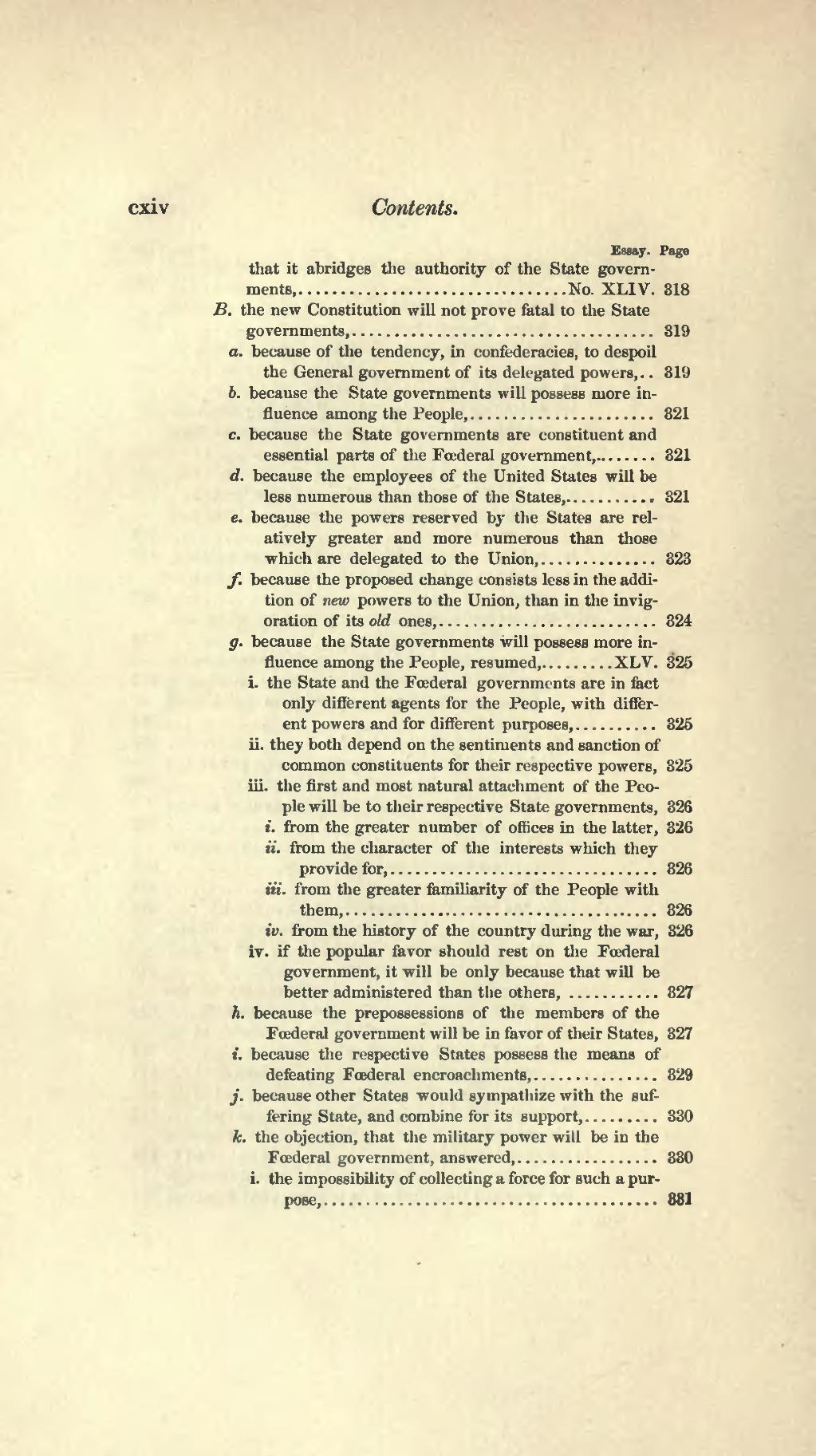This page has been validated.
cxiv
Contents.
| Essay. | Page | |
| that it abridges the authority of the State governments, | No. XLIV. | 318 |
| B. the new Constitution will not prove fatal to the State governments, | 319 | |
| a. because of the tendency, in confederacies, to despoil the General government of its delegated powers, | 319 | |
| b. because the State governments will possess more influence among the People, | 321 | |
| c. because the State governments are constituent and essential parts of the Fœderal government, | 321 | |
| d. because the employees of the United States will be less numerous than those of the States, | 321 | |
| e. because the powers reserved by the States are relatively greater and more numerous than those which are delegated to the Union, | 323 | |
| f. because the proposed change consists less in the addition of new powers to the Union, than in the invigoration of its old ones, | 324 | |
| g. because the State governments will possess more influence among the People, resumed, | XLV. | 325 |
| i. the State and the Fœderal governments are in fact only different agents for the People, with different powers and for different purposes, | 325 | |
| ii. they both depend on the sentiments and sanction of common constituents for their respective powers, | 325 | |
| iii. the first and most natural attachment of the People will be to their respective State governments, | 326 | |
| i. from the greater number of offices in the latter, | 326 | |
| ii. from the character of the interests which they provide for, | 326 | |
| iii. from the greater familiarity of the People with them, | 326 | |
| iv. from the history of the country during the war, | 326 | |
| iv. if the popular favor should rest on the Fœderal government, it will be only because that will be better administered than the others, | 327 | |
| h. because the prepossessions of the members of the Fœderal government will be in favor of their States, | 327 | |
| i. because the respective States possess the means of defeating Fœderal encroachments, | 329 | |
| j. because other States would sympathize with the suffering State, and combine for its support, | 330 | |
| k. the objection, that the military power will be in the Fœderal government, answered, | 330 | |
| i. the impossibility of collecting a force for such a purpose, | 331 |
